
The codirector of the ALS Center at Washington University School of Medicine provided perspective on the lessons learned from the trials of tofersen, as it aims to become the first FDA-approved therapy specific to SOD1 ALS. [WATCH TIME: 4 minutes]

The codirector of the ALS Center at Washington University School of Medicine provided perspective on the lessons learned from the trials of tofersen, as it aims to become the first FDA-approved therapy specific to SOD1 ALS. [WATCH TIME: 4 minutes]

A phase 1/2a clinical trial resulted in showing that a single dosing of AstroRx was safe and tolerable, at either a low or high dose, for patients with ALS.

IPX203, an oral formulation of carbidopa/levodopa, the standard treatment for Parkinson disease, demonstrated statistically significant results in improving ON time relative to immediate release CD/LD.

The chief of neurology and codirector of the neuroscience Center at the Children's Hospital of Philadelphia spoke about her presentation at ECTRIMS 2022 on the treatment of pediatric MS. [WATCH TIME: 5 minutes]

The Child Neurology Foundation is using community outreach and a new social services network to help children with neurological conditions feel included in contemporary society.
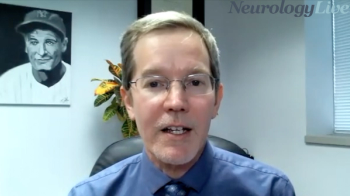
The codirector of the ALS Center at Washington University School of Medicine in St. Louis provided background on how tofersen would be used alongside other ALS medications if approved. [WATCH TIME: 3 minutes]

More than half of the cohort achieved no evidence of disease activity and few patients showed disability progression after 48 weeks of treatment with ocrelizumab.

NurOwn, otherwise known as autologous mesenchymal stromal cells secreting neurotrophic factors cells, has demonstrated significant effects on disease progression in less severe forms of ALS.

Available neurodegenerative disease treatments are generally unsafe and ineffective at penetrating the blood-brain barrier, though the use of nanoparticles can provide improved penetration and exert a neuroprotective effect.
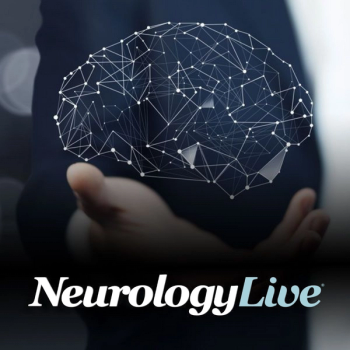
Findings from a study on primary care patients with insomnia suggest there are patient preferences for behavioral and medication treatment strategies for sleep health.
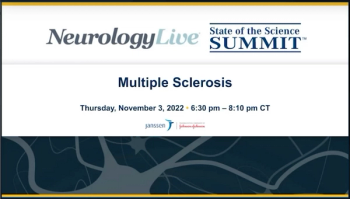
Chaired by Robert T. Naismith, MD, of Washington University in St. Louis, the presentations also feature Salim Chahin, MD, MSCE; Anne H. Cross, MD; Gregory F. Wu, MD, PhD; and Matthew R. Brier, MD, PhD. [WATCH TIME: 1 hour, 55 minutes]

In a meta-analyses review of 10 trials, findings revealed a beneficial effect of listening to music to improve sleep quality for adults with insomnia.
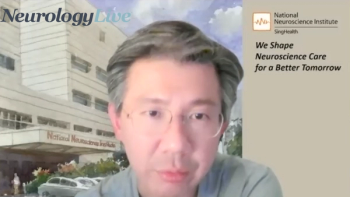
The senior consultant for the department of neurology at the National Neuroscience Institute discussed a report on two patients who developed an uncommon adverse event of late-onset neurotropenia after anti-CD20 therapy treatment. [WATCH TIME: 8 minutes]

After removing participants at higher risk of reaching a floor effect of the ALSFRS-R, those treated with NurOwn demonstrated a higher rate of clinical response and less function lost across 28 weeks than placebo.

The Palatucci Advocacy Leadership Forum, or PALF, sponsored by the American Academy of Neurology, gives neurologists and trainees tools to successfully advocate for their ideas and develop their identity as physician advocates.
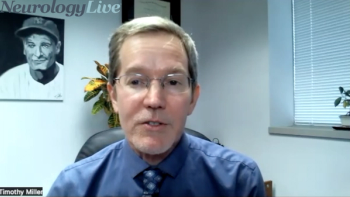
The codirector of the ALS Center at Washington University School of Medicine in St. Louis discussed the long-term data of VALOR and its open-label extension assessing tofersen (Biogen) in SOD1 ALS. [WATCH TIME: 4 minutes]

The clinical research director of the UCSF Multiple Sclerosis Center provided perspective on several analyses from the N-MOmentum trial that highlight the clinical use of biomarkers in NMO and NMOSD.

In a planned superiority analysis, the between-group difference of the 12-month change in MDS-UPDRS part III score was not statistically significant.
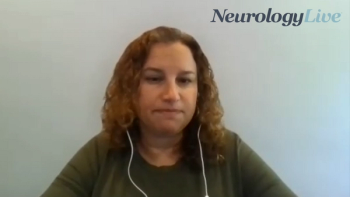
The executive vice principal of advocacy and healthcare access at the National MS Society offered a brief overview of the Inflation Reduction Act of 2022 and how it relates to the economic impact faced by patients with MS. [WATCH TIME: 5 minutes]

SCI-110 not only met its primary safety end points, but the agent showed benefits on secondary outcomes such as need to use rescue medication and exploratory outcomes such as appetite.
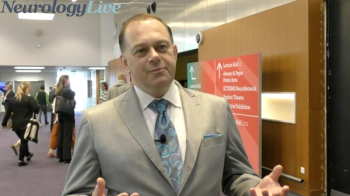
The clinical research director of the UCSF Multiple Sclerosis Center provided perspective on the importance of serum neurofilament light and how it can be used in the management of patients with NMOSD. [WATCH TIME: 3 minutes]

By leveraging digital technologies, the single-arm ARTIOS study will provide unique and comprehensive data that may enrich treatment outcomes for patients with relapsing multiple sclerosis.

The trial, launched through a partnership between Cure Rare Disease and UMass Chan Medical School, assessed CRD-TMH-001, a CRISPR-based gene therapy.

Federica Picariello, PhD, postdoctoral researcher, psychologist, King's College, London, spoke about fatigue mechanisms in patients with MS based on presentations from the 2022 ECTRIMS Congress.
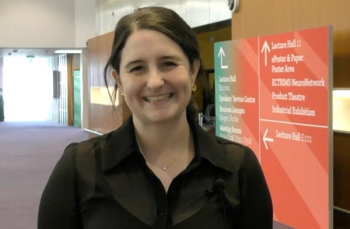
The staff neurologist at the Mellen Center for MS Treatment and Research at Cleveland Clinic spoke about her presentation from ECTRIMS 2022 on teleneurology and its utilization as a tool to make care more accessible to patients with MS. [WATCH TIME: 7 minutes]

Acting as an advocate is meaningful to neurologists because it speaks to their inner core—or their “why.” Neurologists have the agency to make this world a better place while working as a neurologist and an advocate at many levels.

Here's some of what is coming soon to NeurologyLive® this week.

In addition to presenting data from the phase 3 KINECT-HD study of valbenazine in the treatment of chorea associated with Huntington disease, Neurocrine’s chief medical officer noted that the company recently submitted an sNDA to the FDA for the therapy.

The staff neurologist at the Mellen Center for MS Treatment and Research at Cleveland Clinic, spoke about her presentation on teleneurology being a beneficial healthcare tool for patients with MS at ECTRIMS 2022. [WATCH TIME: 7 minutes]

Test your neurology knowledge with NeurologyLive®'s weekly quiz series, featuring questions on a variety of clinical and historical neurology topics. This week's topic is headache and migraine.